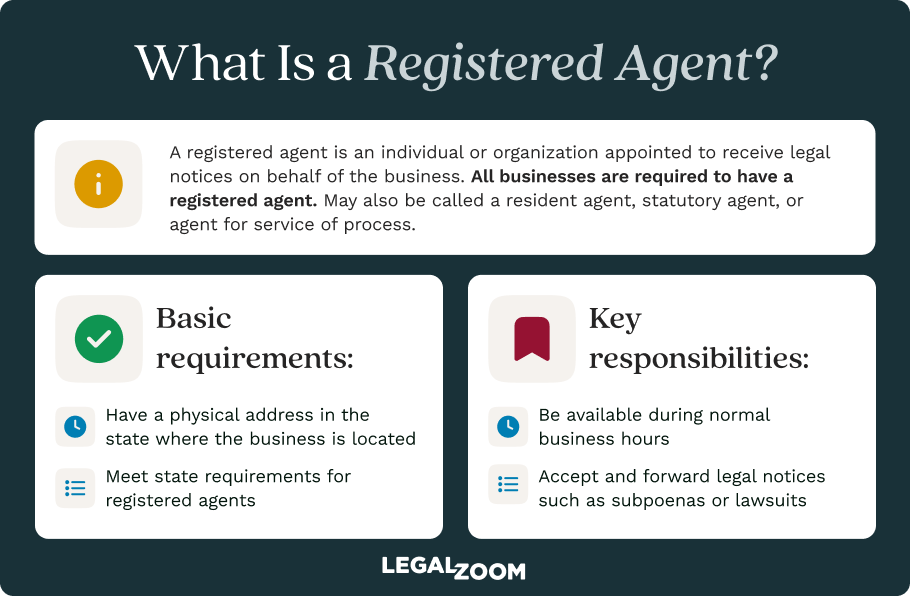Maryland is a great place to start a limited liability company (LLC), thanks to its business-friendly climate and straightforward formation process. Even better: the cost to file your formation documents is relatively low, compared to many other states.
The guide will serve to answer all your questions about forming an LLC in Maryland, from the advantages of LLC formation, to costs and timelines, to a step-by-step breakdown of the process.
Why form an LLC in Maryland?
Forming your business as an LLC comes with a number of advantages.
Liability protections
When you create an LLC, you form a business entity that is legally separate from you, the owner. That’s different from forming a sole proprietorship or a partnership where you and your business are viewed as the same “person” under the law.
This level of separation helps protect your personal assets, like your house or bank accounts, from any debts and liabilities associated with your company. If someone sues your business, your personal assets generally won’t be at risk.
Flexibility
If you want flexibility as a business owner, an LLC may be a good choice for you. Since LLCs don’t have their own federal tax classification, so by default they’re taxed as a sole proprietorship (single-member LLC) or partnership (multi-member LLC), but they can also elect to be taxed as an S corporation or C Corporation. When taxed as a sole proprietorship or partnership, an LLC benefits from pass-through taxation, meaning the business itself generally doesn’t pay federal income tax.
LLCs also afford a certain amount of flexibility when it comes to how your business is managed and run. Unlike corporations, which are required to have a board of directors and officers, LLCs aren’t required to have a formal management structure. Your LLC may be member-managed or manager-managed, can have as many owners as you want and can allocate profits and losses amongst the owners in whatever way you agree upon.
Maryland-specific benefits
Maryland has a business-friendly climate that may appeal to you, especially if you plan to hire employees to work at your LLC. Of particular interest may be the Maryland Enterprise Zone Tax Credit, which provides tax credits of varying amounts (typically $1,000–$1,500) per new employee, to businesses located in certain distressed areas of the state.
Additionally, businesses that create a minimum number of new jobs may also be able to take advantage of Maryland’s Job Creation Tax Credit, with tax credits of $3,000–$6,000 per employee, depending on certain factors such as the location of your business and the employee’s veteran-status.
Maryland LLC quick facts
Here’s an at-a-glance look at some of the costs, timelines, and need-to-knows about filing an LLC in Maryland:
Total cost to form: $100–$145
Processing time: 7–10 days (online) to 6–8 weeks (mail)
Annual requirements: $300 annual report
How to create a Maryland LLC in 6 steps
Forming a limited liability company in Maryland involves several key steps.
Step 1: Choose your business name
The first step in starting your Maryland LLC is choosing a unique name for your business. Maryland requires your LLC’s name to include “Limited Liability Company” or the abbreviations “LLC” or “L.L.C.” This helps identify your business entity as a limited liability company and makes it distinct from other entities. Make sure your name doesn’t conflict with any existing businesses, and avoid restricted terms like “bank” or “insurance,” unless you have the proper licenses to use those words.
To ensure your name is unique, do a Maryland LLC search using the Secretary of State’s business name search tool. This database allows you to search for business names that are already registered, which means they’re not available. You can also use LegalZoom’s free business name lookup tool below.
Free Maryland Business Name Check
Use our free name check tool to search the Maryland Secretary of State database and see if your business name is available.
By clicking "Check Availability," I agree to LegalZoom's Terms of Use. This search is a preliminary check of state databases and does not include variations or trademarks. Results do not guarantee name availability or compliance with legal requirements.
If you’re not ready to file your LLC formation paperwork yet, you can reserve your business name for 30 days for a $25 fee.
When deciding on a name for your LLC, you may also want to consider whether you plan to file a trademark for your name and whether your desired domain name is available. While you may not be ready to market your business, it would be a disappointment to register your business name only to find out that someone else owns the rights to use it on marketing materials or a website down the line.
Step 2: Appoint a resident agent
Every LLC in Maryland is required to appoint a resident agent, also known as a registered agent. This person is responsible for receiving important legal documents and official government notices on behalf of your business. The resident agent must have a physical address in Maryland—P.O. boxes aren’t allowed—and must be available during normal business hours.

You can act as your own agent, appoint another individual, or hire a professional resident agent service. It can be tempting to save money by acting as your own registered agent, but remember: registered agents must be available at their registered address during regular business hours. This could significantly affect your ability to move about and perform basic functions related to the growth and success of your business. Registered agent information also becomes a part of the public record, which could have privacy implications.
While it does incur an additional cost, using a professional registered agent also comes with a lot of benefits. For example, LegalZoom’s Rosedale-based Maryland registered agent service provides you with automatic alerts when you get mail along with digital copies you can access from anywhere. And, you can take advantage of unlimited cloud storage for important legal documents related to your business.
If you decide to use a resident agent service, make these arrangements before you file, as you’ll need to include their name and address on your LLC formation paperwork.
If you ever need to change your resident agent, you can file a Resolution to Change Principal Office or Resident Agent with the Maryland State Department of Assessments and Taxation (SDAT), which charges a $25 filing fee for the update.
Step 3: File the articles of organization
To officially create your Maryland LLC, you’ll need to file articles of organization with SDAT, which you can do online after you create an account with Maryland Business Express. You can also mail in a paper filing with a check or money order. The fee for both online and paper filings is $100. The articles of organization provide key information about your LLC, such as:
- The LLC’s name and Maryland business address
- The purpose of the LLC
- The resident agent’s name and address
- The signature, name, and address of the person filing the paperwork
Standard review of your LLC application takes six to eight weeks. You can pay an additional $50 for review within seven to 10 days. You can also pay a fee for same-day expedited service: $325 for online filings and $425 if you deliver the documents to the SDAT office in Baltimore.
Step 4: Create an operating agreement
While Maryland LLCs aren’t legally required to have a written operating agreement, it’s strongly recommended that small businesses create one. The LLC operating agreement outlines how your business will be run, the roles of each member, and how profits and losses will be distributed.
An operating agreement can prevent disputes between members by clearly defining each person’s responsibilities and expectations. It can also be useful for opening a business bank account or dealing with investors and other third parties. You can create an LLC operating agreement yourself, use a Maryland LLC operating agreement template, or consult an attorney to draft one that checks all the boxes and is tailored to your specific needs.
Building a business is enough work as it is. We'll help you start your LLC with confidence.

Step 5: Obtain a federal tax ID and open a business bank account
Most Maryland LLCs will need an employer identification number (EIN) from the IRS. This is a federal tax identification number that the IRS uses to identify your business when you file federal taxes. A bank may also require one to open a business bank account. Small businesses that plan to hire employees—and take advantage of Maryland’s job tax credits—will need an EIN.
Even if your Maryland LLC doesn’t have employees, obtaining an EIN can help separate your business finances from your personal finances, a crucial way to maintain your liability protection.
Getting an EIN is simple and free. You can apply online through the IRS website and receive your EIN immediately. To make it even easier, use LegalZoom to get an EIN—we’ll fill out the paperwork and confirm your ID number, so you can be sure everything is accurate.
Step 6: Register for state taxes and business licenses
Depending on your business’ industry, you may need to register for various state taxes. If you sell physical products, you’ll need to open a sales tax account with the Maryland Comptroller. If you have employees, you’ll need to withhold state and federal employment taxes and register to pay the unemployment insurance (UI) tax. Certain LLCs in Maryland might have to pay additional taxes, like the Admissions and Amusement Tax, Motor Fuel Tax, or Tobacco Tax. The Maryland Comptroller website has more information on how to pay taxes.
Remember: if you elect to have your LLC taxed as a sole proprietorship or partnership, you’ll avoid paying corporate taxes and instead pay taxes on any business profits on your individual income tax return. In Maryland, income tax rates range from 2% to 5.75%. Or, you may elect to pay Maryland’s Pass-Through Entity (PTE) tax. This is an elective tax that would tax your LLC at the entity level (typically 8% for individuals), but provide you with the option to deduct the full amount of the tax on your federal return.
While Maryland doesn’t require a general business license, certain LLCs may need state or local licenses. Business entities that sell alcohol, tobacco, food, or goods through vending machines, plus storage warehouses, construction companies, scrap metal processors, and other specific businesses require a license from the state. You might also need local business licenses from your city or county. You can check which licenses and permits apply to your business through Maryland’s OneStop Portal.

What to do after forming your Maryland LLC
After your Maryland LLC registration is complete, there are a few additional steps that can help your small business get up and running.
- Register a domain name. Even if you don’t plan to sell goods online, you’ll need a website so that potential customers can discover your business. That’s why it’s smart to secure a domain name that matches your Maryland business name. You can use services like Wix, Namecheap, or GoDaddy to find and register a domain name.
- Obtain a Certificate of Status. A Certificate of Status in Maryland proves that your LLC is legally registered and up to date on all filings and fees. (In other states, this document is called a certificate of good standing.) While not required for everyday business operations, it can be useful when you’re applying for loans or doing business with partners and investors. You can request it from the Maryland SDAT for a $20 filing fee.
- Consider a foreign LLC. If your Maryland LLC will also conduct business outside the state, you may need to register as a foreign LLC in other states. Each state has its own filing requirements and fees for foreign LLCs.
- Look into business insurance. While LLCs help limit your personal liabilities, they can’t completely absolve you of any business risk. Obtaining general liability insurance for your business may provide you with necessary added protections.
- Set up accounting systems. Unless you’re a business tax expert, keeping your business books up to date and understanding all the tax credits and liabilities that come with owning a company can be tricky—not to mention time consuming. Getting help from an accountant or professional tax expert could help free up your time and provide added pieces of mind.
- Create a compliance checklist. Owning a business means staying up to date with any compliance regulations necessary to keep your company in good standing with the state. This can include anything from keeping business licenses current, to filing annual reports, to completing your tax returns on time. If you’re new to these types of compliance tasks, it can be a smart idea to keep a checklist or compliance calendar to remind yourself of upcoming deadlines.
Annual filing requirements for Maryland LLCs
All legal business entities in Maryland are required to file an annual report every year by April 15. This way, the state can be sure it has the right information, like your business address and resident agent, on file. If your LLC owns, leases, or uses personal property located in Maryland that’s worth $20,000 or more, you’ll also need to file a Personal Property Tax Return.
The filing fee for the Maryland Annual Report is $300, and there’s no fee for the Personal Property Tax Return. Failing to file on time can result in late fees, penalties, or even the administrative dissolution of your LLC, which would put your business out of good standing with the state. Online services can send reminders and help you file your annual report so you stay compliant.
How much does it cost to form an LLC in Maryland?
Starting an LLC in Maryland costs a minimum of $100 to file your articles of organization. If you choose other services, like reserving a name or requesting a Certificate of Status, it might cost a little more. Here’s what you can expect to pay:
- Name reservation: $25 filing fee to reserve a name for 30 days
- LLC formation: $100 for filing the articles of organization
- Certificate of Status: $20 filing fee
- Resident agent service: $100–300 per year
- State and local business licenses: Varies by location and business entity type
The minimum cost of Maryland LLC formation ranges from $100 to $145, plus the cost of any business licenses or resident agent service. You’ll also need to pay $300 each year when you file your Maryland Annual Report.
LegalZoom can help you file your state's formation paperwork for as little as $0 + state filing fees.

How to start your Maryland LLC with LegalZoom
Starting an LLC is exciting, but there’s a lot to think about. You want to protect your personal property, build credibility, and access tax savings as quickly as possible, so you can focus on growing your business. Fortunately, starting an LLC in Maryland can be simple and quick, especially when you use a service like LegalZoom. We can help you make sure your LLC paperwork is error-free and filed correctly, so you don’t waste time with denied applications.
Forming your Maryland LLC with LegalZoom takes just three easy steps. First, you’ll provide basic details about your business in a straightforward questionnaire. We’ll handle the heavy lifting by filing your articles of organization with the Maryland Department of Assessments and Taxation Charter Division. Once your LLC is approved, you’ll receive your official formation documents. Start your LLC with confidence today.
Start an LLC in Any State
FAQs about LLCs in Maryland
How long does it take to get an LLC in Maryland?
If you file your articles of organization online through the Maryland Business Express portal, it typically takes seven to 10 business days. Filing by mail can take four to six weeks. Processing times for paper filings can vary depending on the state’s workload, so online filing is typically the faster option.
What are the benefits of an LLC in Maryland?
Maryland offers several benefits for LLCs, including limited liability protection for personal assets, flexible management structures, and the ability to choose how your business is taxed. Maryland’s business-friendly environment and access to resources make it an attractive place for entrepreneurs.
Do LLCs pay taxes in Maryland?
Yes, many LLCs in Maryland will need to pay state taxes, depending on their business activities. LLCs themselves are typically taxed as pass-through entities, meaning profits are passed to the members, who then pay taxes on their personal returns. However, businesses may still need to pay sales tax, employment taxes, or personal property taxes, depending on the nature of the business. The Maryland Comptroller website has more information on how to pay taxes.
Is Maryland a good state to start an LLC?
Yes, Maryland can be a great state to start an LLC. It has strong business support systems, great tax credits for job creation, and a favorable location near major economic hubs like Washington, D.C. Maryland’s streamlined online filing system makes it easy for new business owners to get started quickly and provides flexibility in how they structure their LLC.
Carolyn Albee and Rudri Bhatt Patel contributed to this article.




